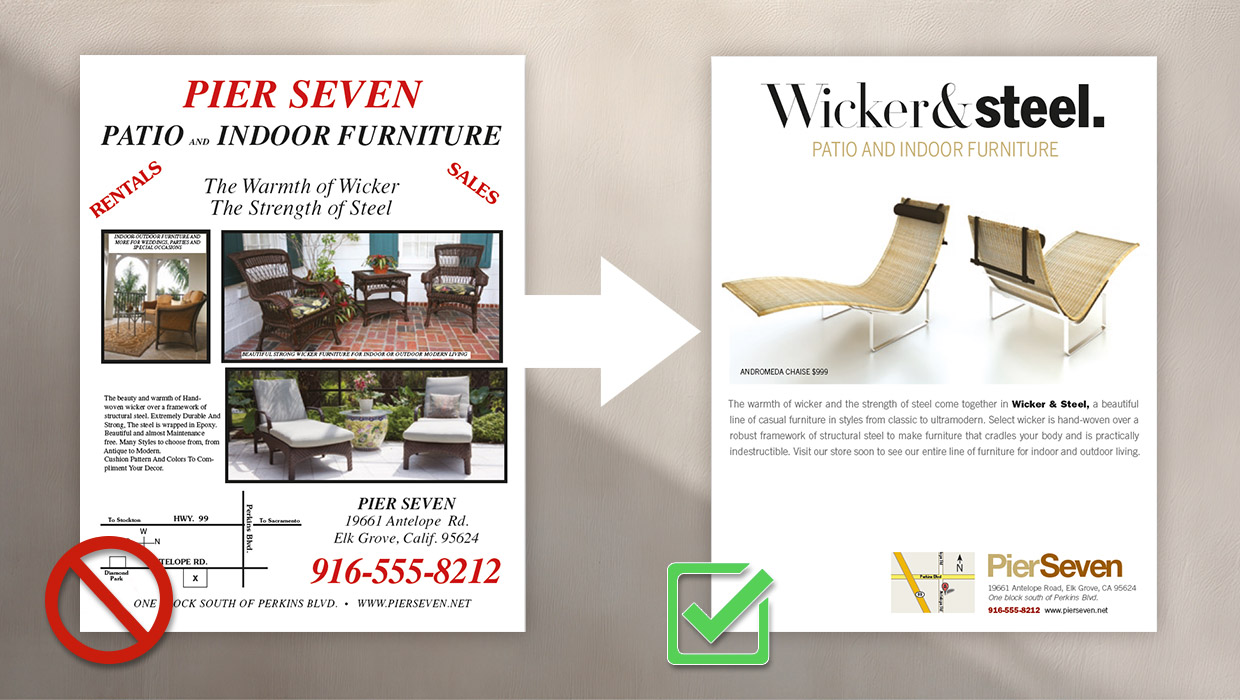The Art of Business: Banking on Accounts Receivable

About the only thing worse than having to nag a client for payment is not getting paid at all. But if you don’t collect what’s owed to you sooner when than later, your chances of ever seeing payment diminish with every passing day; after three months, the probability of collecting a delinquent account drops to 73 percent, according to the Commercial Collection Agency Association. After six months, your chance of seeing the money is 57 percent. After one year, it’s a dismal 29 percent.
Bank These Tips
These tips may help you avoid collections altogether and collect successfully when your payment lags.
Tip 1: Be clear about payment terms. Many creative professionals often find themselves in the position of having to hound clients for money because they haven’t adequately addressed the issue of payment. So in addition to an estimate, purchase order, or proposal that states the compensation, make sure to draw up a letter of authorization signed by the client that specifically states the amount and terms of payment. This is your ace in the hole if payment becomes a problem. It sounds elementary, but it’s worthy of repeating; let your clients know your payment terms clearly from day one.
Tip 2: Do your due diligence. In a lukewarm economy there are plenty of companies — no matter how fancy their offices or plush their furniture — that are experiencing cash-flow problems. If one happens to be your client, you can be sure that a creative studio will be at the bottom of their creditors’ lists. So before you sign on to do a big project, check the appropriate online trade mags for financial info on your client or make casual calls to other contractors working for the client to get a feel of the company’s financial health and payment history. If you know the client has a spotty history, keep a timely eye on the account, and follow up even a week after a payment is delinquent.
Tip 3: Establish collection policies. It will probably take you less than five minutes to think about the payment habits you’ve created for your company. Do you regularly extend payments to customers? An instance here or there might not hurt you, but if you’re always the good guy when it comes to payments, your cash flow is going to take a hit, and your creditors might not be as benevolent as you. Do you accept big balloon payments at the end of projects instead of asking for incremental pay at significant milestones along the way? It may be okay occasionally to wait until the end, but the milestone method gives you some leverage if the payments don’t come; you can halt work until the situation is rectified.
Tip 4: Keep talking. If you’re experiencing a collection problem or foresee one coming, talk to the right person quickly. An open dialogue is the best dialogue. Some clients, as you may have already experienced, will attempt to cover up their inability to pay by inventing a dispute over the quality or timing of your work. That’s why it’s so important to make sure the client is happy every step of the way. Do so with a written sign off for each step successfully completed. And keep talking.
Tip 5: Be fearless. You’re in a tricky situation: You want to get paid but you don’t want to be seen a pest. Thankfully, there’s a collection protocol that is of great value. If you don’t receive payment after “net 30,” follow up with polite “reminder” telephone call. If payment is not made after 45 days, send out a second invoice and call again to politely ask the reason for the delay. Don’t hang up until you have an honest and acceptable answer. If you haven’t been paid after 60 days, send an invoice marked third and final, and call once again, this time demanding payment. Talk to the accounts payable manager, your point person on the project, and her boss. Spread the word — the squeaky wheel gets the grease.
Tip 6: When all else fails, cut a deal. Better yet, don’t cut a deal. Why should you? You’re a professional, a client has accepted your terms, they should pay full price. However, if you see no possible way of getting paid the full amount, suggest a price cut in exchange for immediate payment. Needless to say, use this method only sparingly and once you do so, make every modification necessary to never place yourself in this position again.
Collection Alternatives
If you’ve called three times and sent out three invoices, and you’re still not getting paid, there are some options available. If you’re owed a small amount, say $2,500 or under, small claims court is probably your best bet. There’s usually a small filing fee and the process in fairly informal (some states don’t allow lawyers). Judgment is often swift. Unfortunately, however, most small claims courts have no teeth, so they can’t compel anyone to pay. Nevertheless, you have a judgment against your client and no one likes that.
If you’re chasing down a bill of between $2,500 to $10,000, you might want to try a collection agency. Get ready to cough up a major cut to the agency, which will take between 25 percent and 50 percent of the total that comes to you. And there’s no guarantee they’ll haul in 100 percent of what’s owed. But don’t wait too long; collection agencies face the same diminishing odds over delinquent payments.
If you’re owed $10,000 or more contact a good attorney. He or she will have a small arsenal of strategies, ranging from a simple request letter to a formal complaint asking for a court to freeze your client’s bank account in the amount equal to your bill.
The best alternative, naturally, is to take precautions and establish policies that ensure payment promptly and often, because nobody wins the dreaded, excruciating collections game.
This article was last modified on July 18, 2023
This article was first published on July 12, 2004
Commenting is easier and faster when you're logged in!
Recommended for you

How Paste Into Positions Objects
InDesign’s Paste Into feature lets you nest one object (or a group of obje...

InDesign Template Essentials: Charts and Diagrams
The set includes items for quickly assembling flow charts, org charts, process d...

How to Be a Better Graphic Designer: Keep It Simple
In a world that shouts, the voice we truly hear is the one that speaks with calm...



